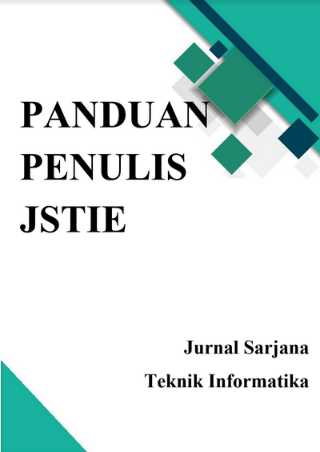EVALUASI E-READINESS PEMANFAATAN SISTEM INFORMASI MANAJEMEN (SIM) SUMBER DAYA MANUSIA (SDM) di UNIVERSITAS AHMAD DAHLAN YOGYAKARTA
DOI:
https://doi.org/10.12928/jstie.v4i3.10766Abstract
Sistem Informasi Managemen (SIM) dapat didefinisikan sebagai kumpulan dari interaksi sistem-sistem informasi yang bertanggung jawab mengumpulkan dan mengolah data untuk menyediakan informasi yang berguna. SIM bertujuan agar organisasi memiliki informasi yang bermanfaat dalam pengambilan keputusan, baik keputusan rutin maupun keputusan strategis. Â Readiness merupakan keadaan kesiapan dari pemerintah dan masyarakat pengguna terkait dengan pelayanan berbasis teknologi informasi dan komunikasi. Pada penelitian ini akan mengevaluasi tentang sejauh mana kesiapan SIM SDM.
Evaluasi kesiapan dilakukan dengan menyebar kuesioner pada sampel yaitu dosen Universitas Ahmad Dahlan (UAD) Yogyakarta. Evaluasi meliputi aspek kesiapan dukungan pimpinan, kesiapan sarana, penggunaan sistem dan budaya yang dikelompokan kedalam 8 model e-readiness chapnick. Kuesioner kemudian diuji dengan uji validitas, uji reabiliitas. Kemudian untuk mengetahui besarnya prosentase masing – masing aspek kesiapan dosen digunakan teknik analisis data dengan menggunakan metode skala likert.
Dari analisis data diperoleh hasil prosentase aspek dukungan pimpinan  72,50%, aspek kesiapan sarana 81,88%, aspek penggunaan sistem 70,20%, dan aspek budaya 75,83%. Dapat disimpulkan bahwa SIM SDM sudah siap digunakan. Namun perlu ada peningkatan pendekatan berupa sosialisasi dari pimpinan dan pelatihan secara menyeluruh kepada dosen. Sehingga harapannya SIM SDM yang ada dapat dijalankan dengan maksimal dan kendala-kendala yang telah diketahui dapat diminimalisir
Kata Kunci: E-Readiness, model Chapnick, SIM SDM
References
Arikunto, Suharsimi. 2010. Prosedur Penelitian. Jakarta : Rineka Cipta
Chapnick. 2000. Are you ready for E-learning? – E-Learning readiness assessment. Di akses pada tanggal 10 Oktober 2012.
Indrajit, Richardus Eko. 2002. Electronic Government Strategi Pembangunan dan Pengembangan Sistem Pelayanan Public Berbasis Teknologi Digital. Yogyakarta : Penerbit Andi
Pangestu, Danu Wira. Teori Dasar Sistem Informasi Manajemen. ebook ilmukomputer.com diakses 31 oktober 2014
Sugiyono. 2012. Metode Penelitian Kuantitatif, kualitatif dan R&D. Bandung : Penerbit Alfabeta
Waryanto, N. H. (2010). E-Readiness. Artikel. Diakses pada tanggal 16 Desember 2010, dari http://blog.uny.ac.id/nurhadi/2010/08/23/e-readiness/.
Published
Issue
Section
License
License and Copyright Agreement
In submitting the manuscript to the journal, the authors certify that:
- They are authorized by their co-authors to enter into these arrangements.
- The work described has not been formally published before, except in the form of an abstract or as part of a published lecture, review, thesis, or overlay journal. Please also carefully read Journal Posting Your Article Policy.
- The work is not under consideration for publication elsewhere.
- The work has been approved by all the author(s) and by the responsible authorities – tacitly or explicitly – of the institutes where the work has been carried out.
- They secure the right to reproduce any material that has already been published or copyrighted elsewhere.
- They agree to the following license and copyright agreement.
Copyright
Authors who publish with Jurnal Sarjana Teknik Informatika agree to the following terms:
- Authors retain copyright and grant the journal right of first publication with the work simultaneously licensed under a Creative Commons Attribution License (CC BY-SA 4.0) that allows others to share the work with an acknowledgement of the work's authorship and initial publication in this journal.
- Authors are able to enter into separate, additional contractual arrangements for the non-exclusive distribution of the journal's published version of the work (e.g., post it to an institutional repository or publish it in a book), with an acknowledgement of its initial publication in this journal.
- Authors are permitted and encouraged to post their work online (e.g., in institutional repositories or on their website) prior to and during the submission process, as it can lead to productive exchanges, as well as earlier and greater citation of published work.







